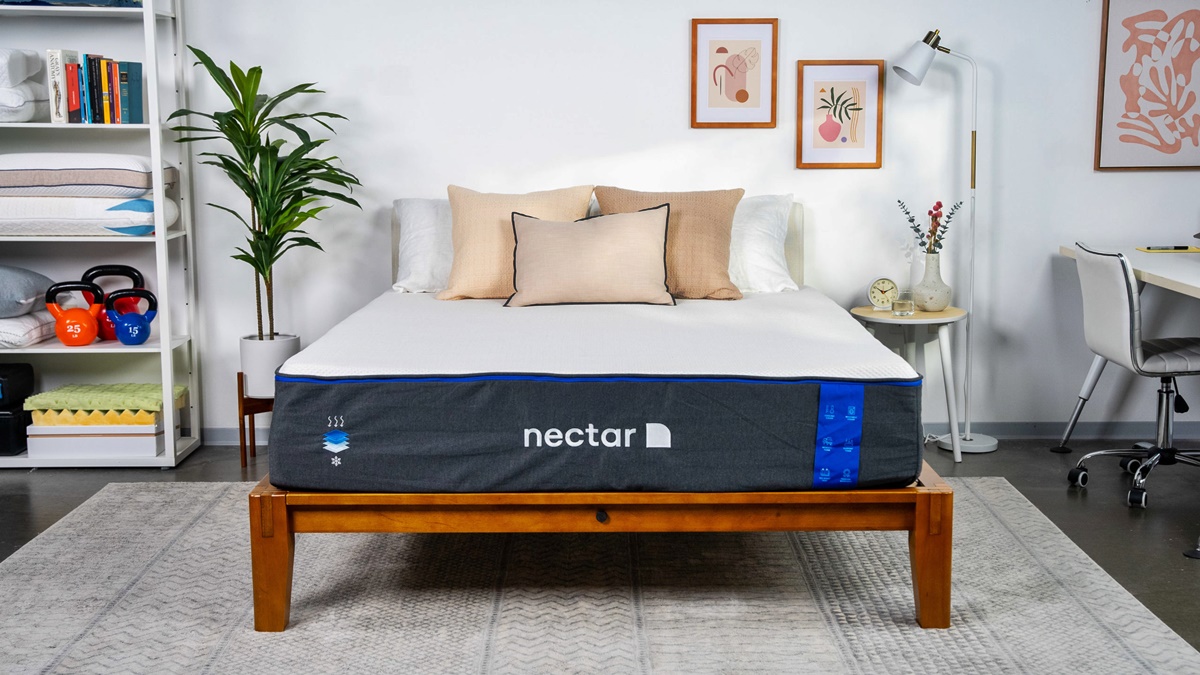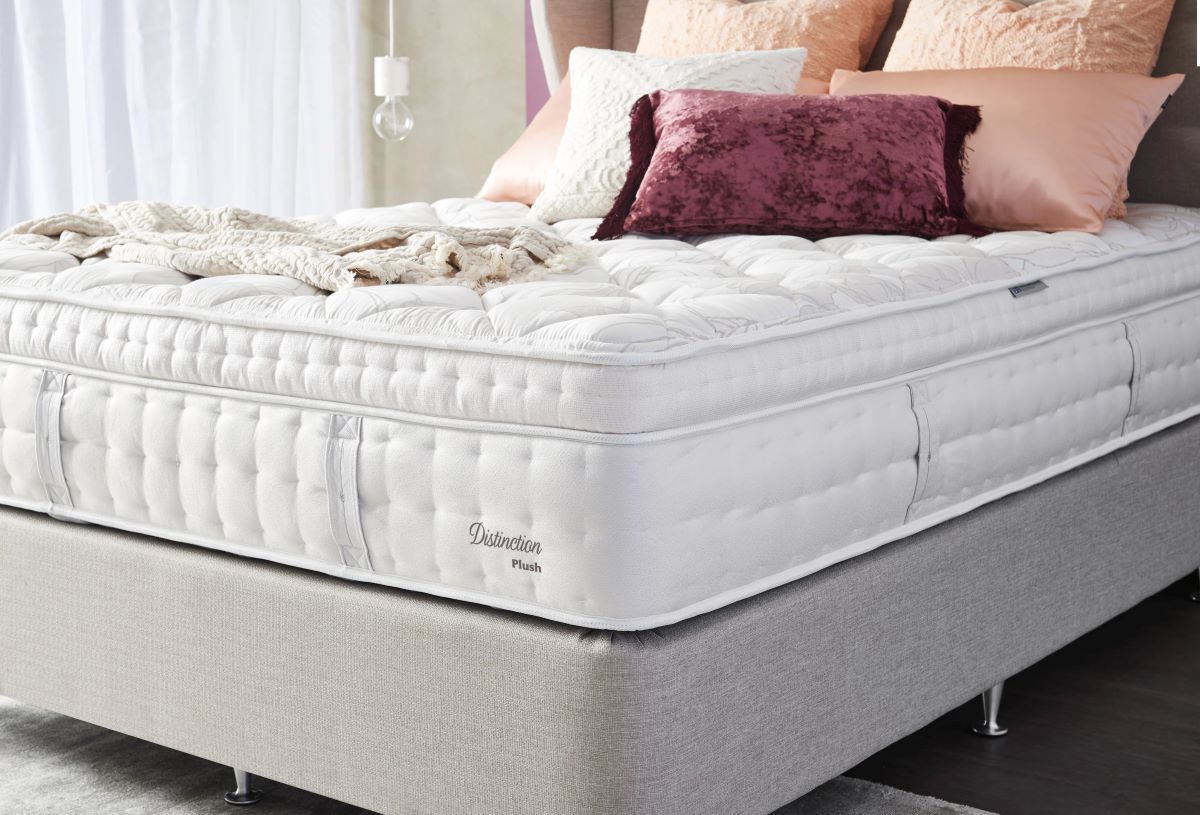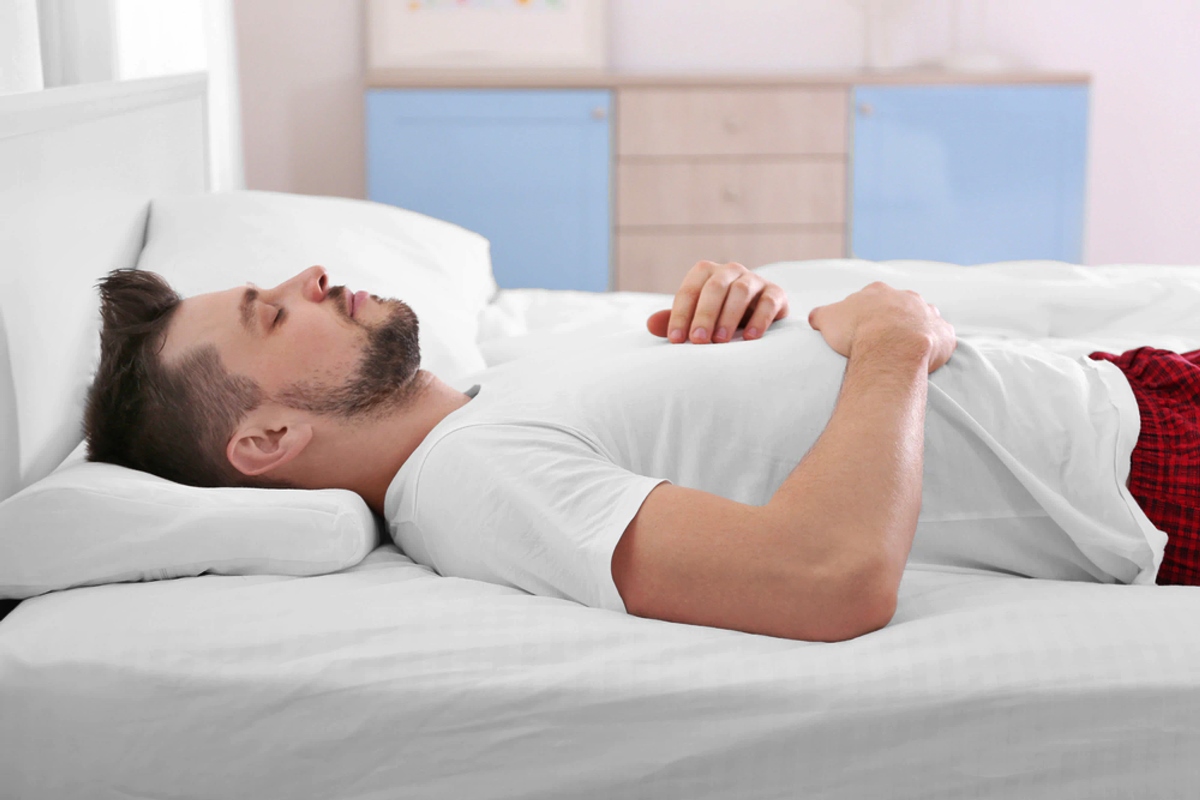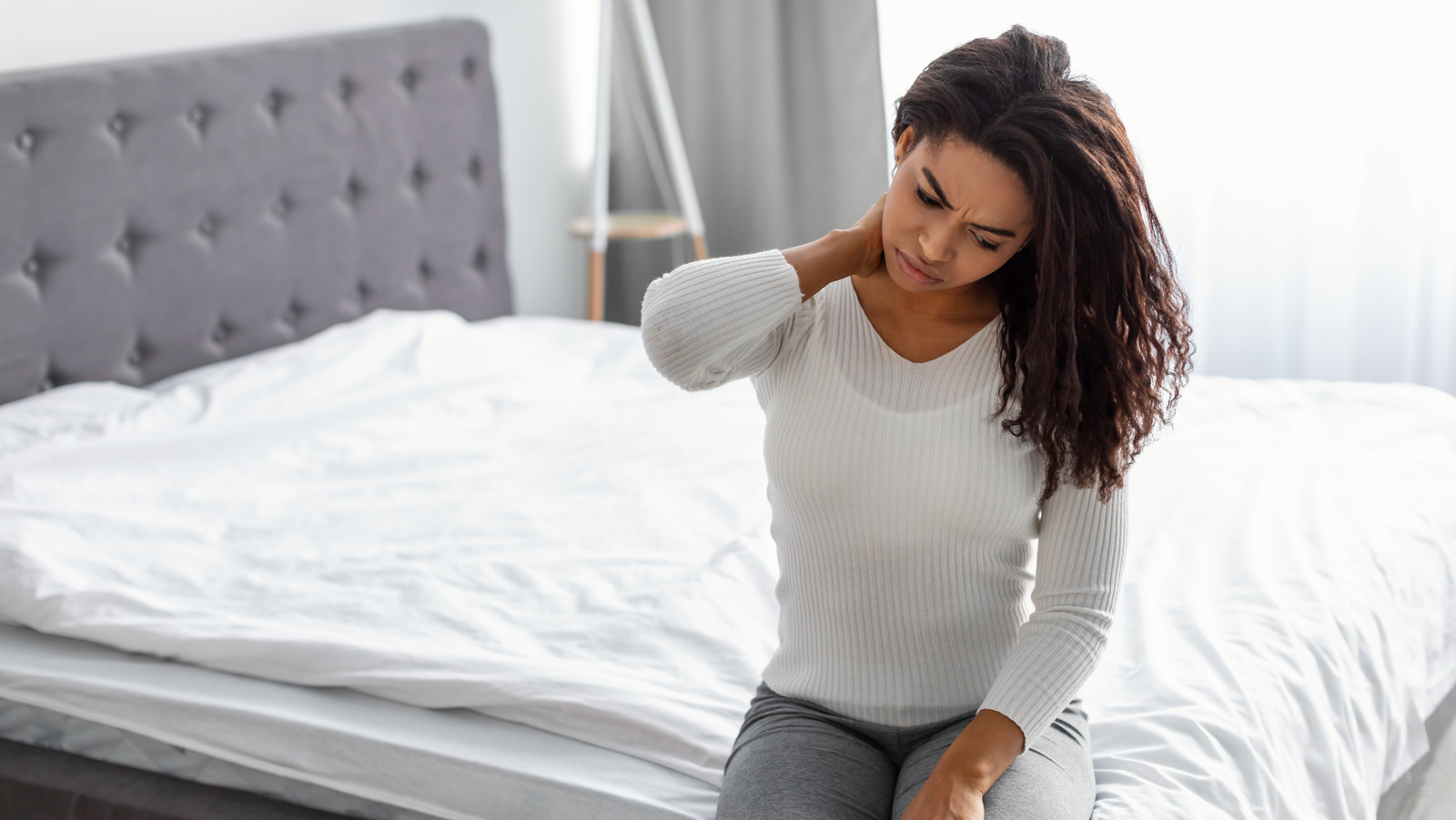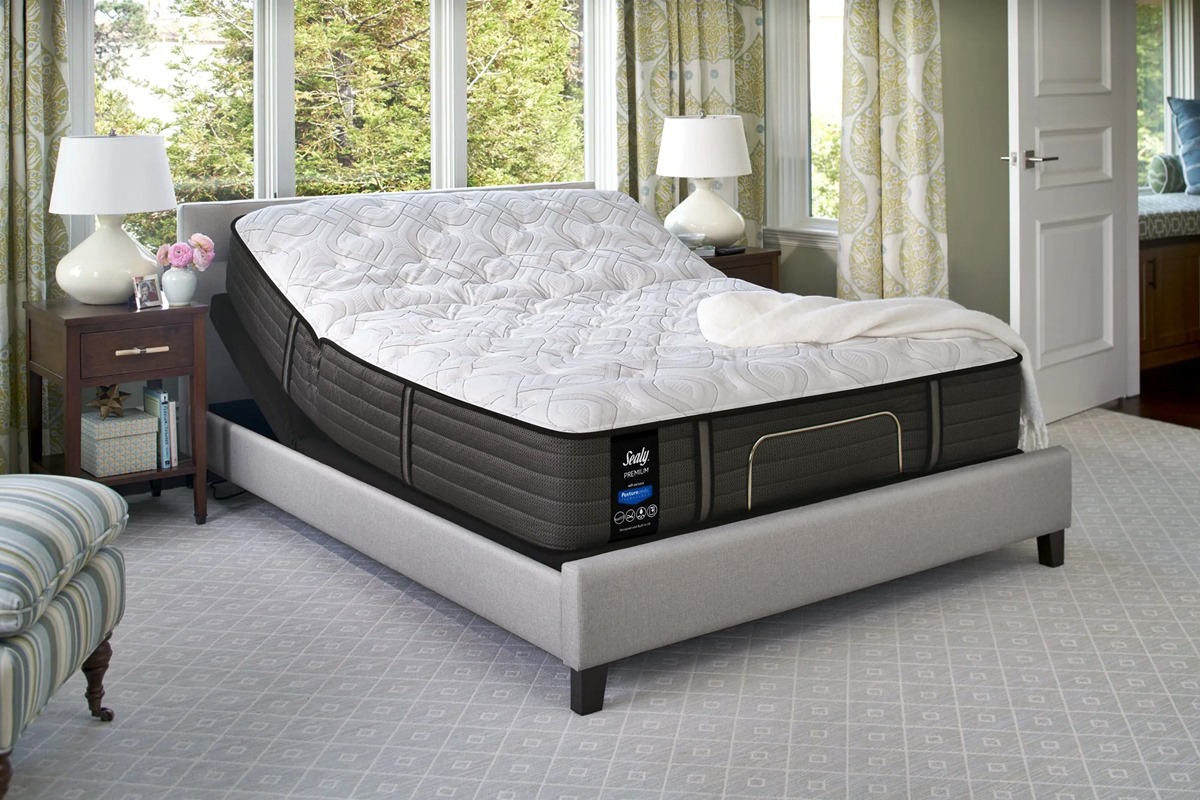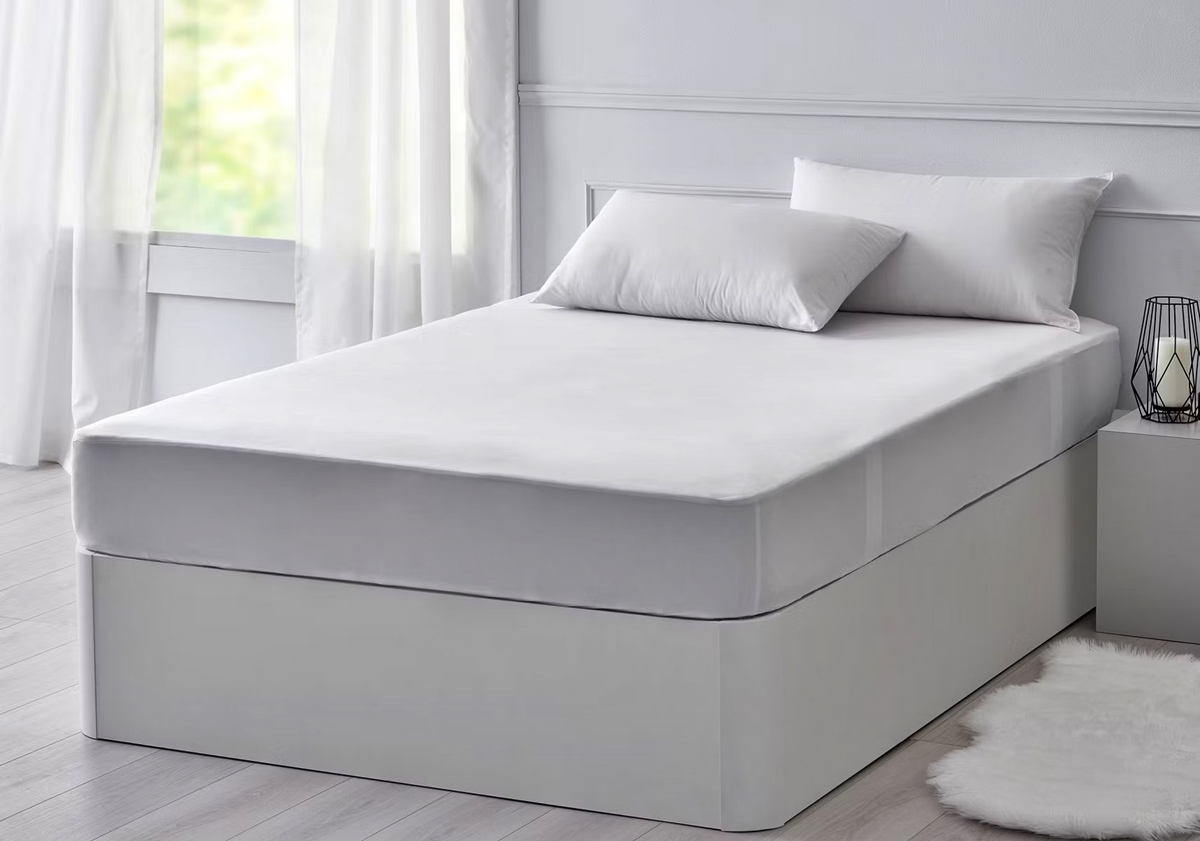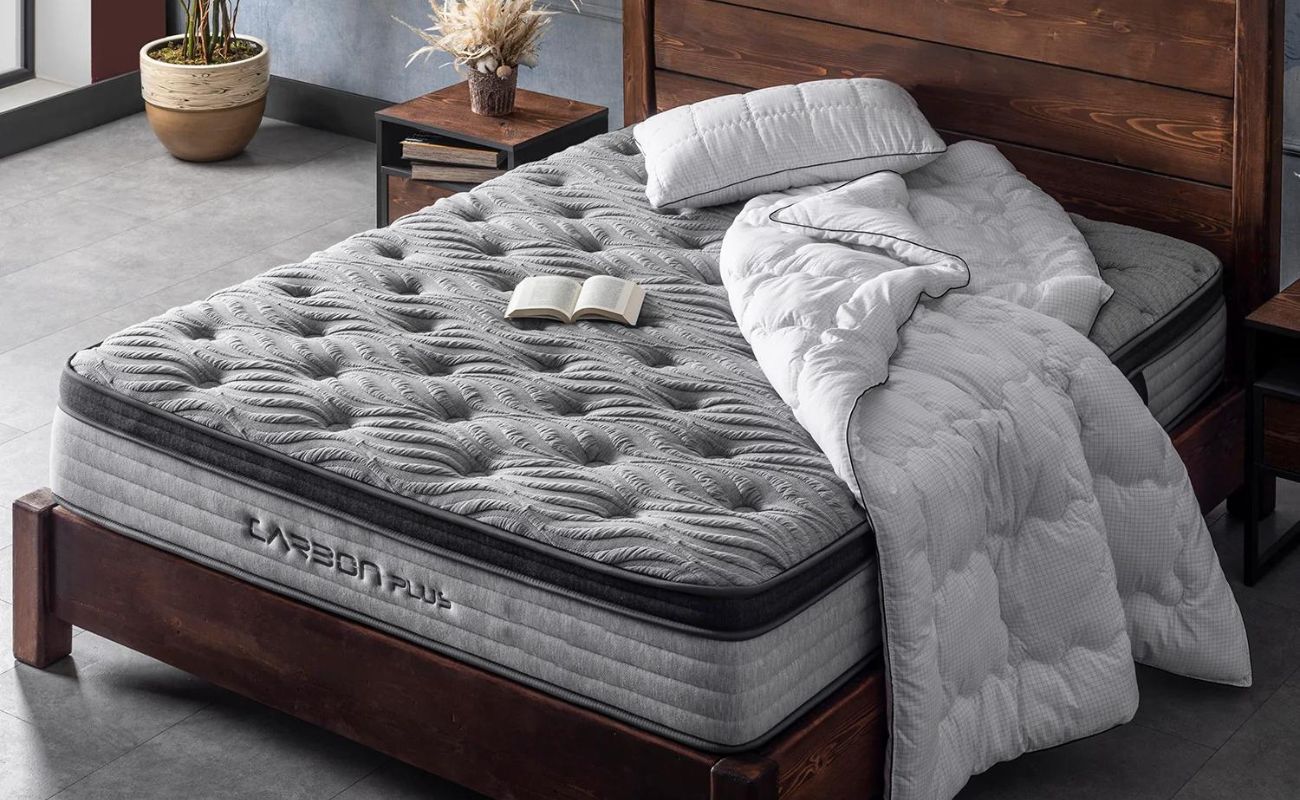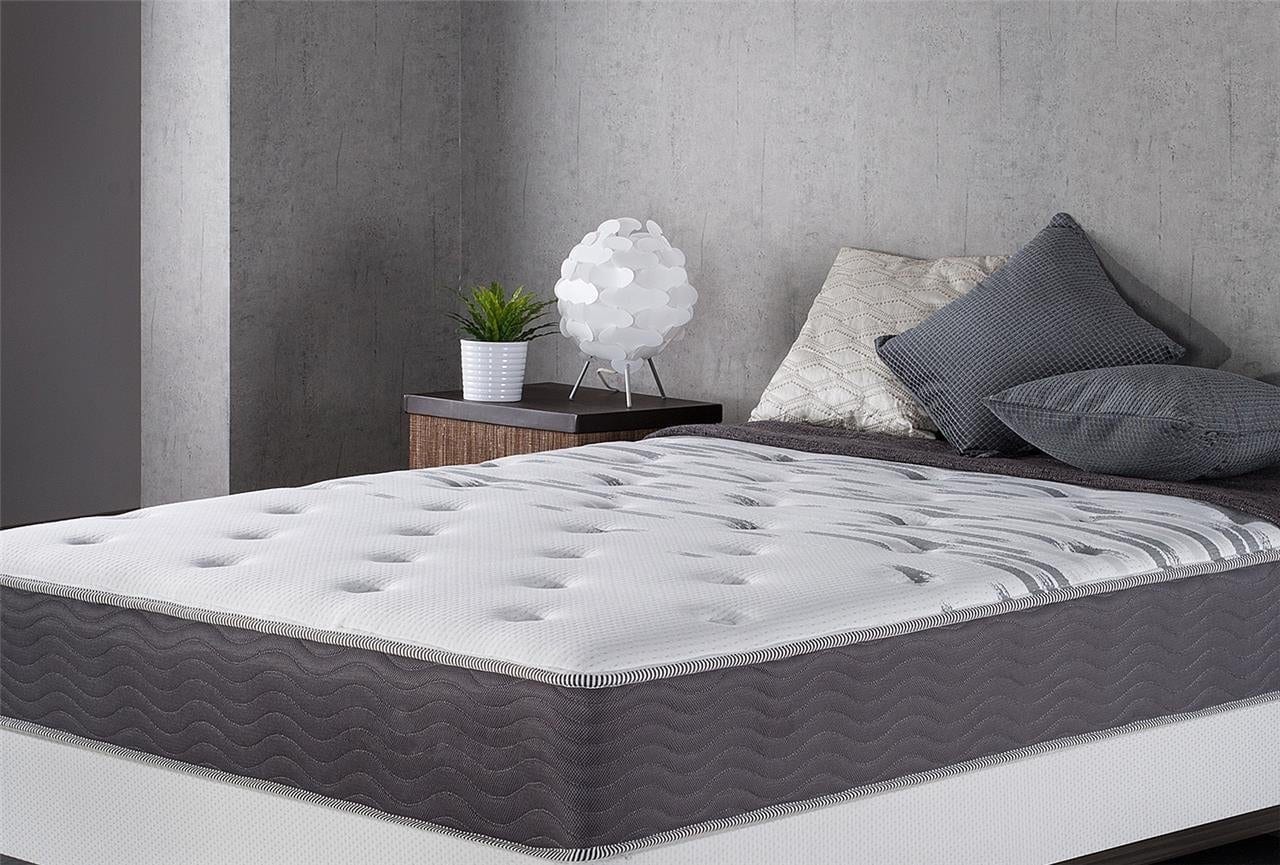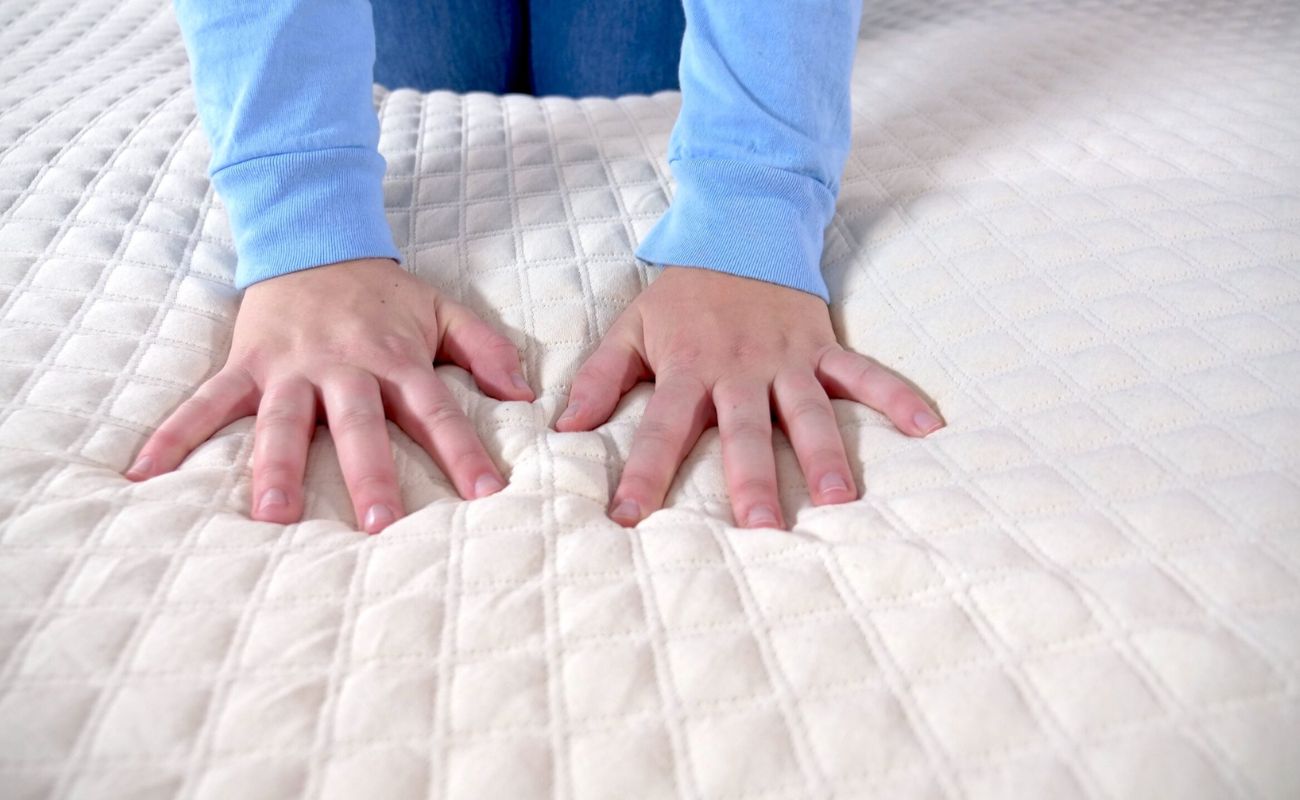Home>Furniture>Bedroom Furniture>How Firm Should A Baby Mattress Be
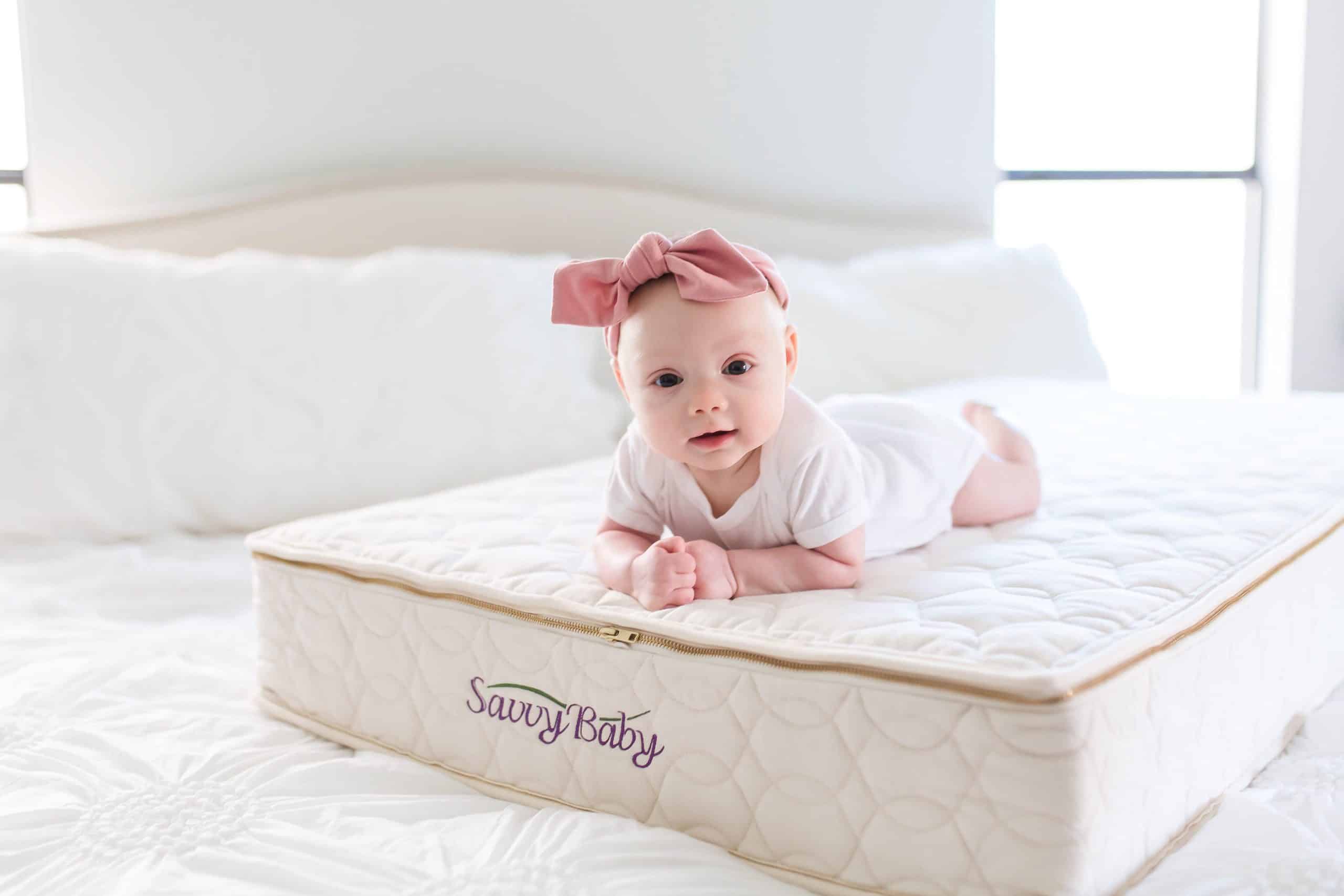

Bedroom Furniture
How Firm Should A Baby Mattress Be
Modified: January 6, 2024
Discover the ideal firmness level for your baby's mattress to ensure a comfortable and safe sleep environment. Explore our wide selection of bedroom furniture options for your little one.
(Many of the links in this article redirect to a specific reviewed product. Your purchase of these products through affiliate links helps to generate commission for Storables.com, at no extra cost. Learn more)
Introduction
Welcome to the wonderful world of baby furniture! As a parent or guardian preparing for the arrival of your little one, it’s important to create a safe and comfortable environment for them to grow and thrive. One crucial piece of furniture that deserves your attention is the baby mattress. But with so many options available, how do you choose the right one? One of the key factors to consider is the firmness level of the mattress.
Finding the appropriate firmness for a baby mattress is essential for their safety and development. It ensures that their delicate growing bodies are properly supported, allowing them to sleep soundly and wake up refreshed. But what exactly does “firmness” mean in the context of a baby mattress, and why is it so crucial?
In this article, we will explore the factors to consider when selecting the right firmness level for a baby mattress, discuss the importance of proper firmness, highlight the potential risks of mattresses that are too firm or too soft, provide guidelines for choosing the right firmness level, and offer tips on maintaining the appropriate level of firmness throughout your baby’s early years.
So, whether you’re a first-time parent or just looking to upgrade your baby’s sleep surface, keep reading to discover everything you need to know about choosing the perfect firmness for a baby mattress.
Key Takeaways:
- Proper baby mattress firmness is crucial for spinal alignment, SIDS prevention, and skeletal support. Choosing the right firmness level based on age and certifications ensures a safe and comfortable sleep environment for your little one.
- Maintaining the appropriate firmness in a baby mattress is essential for comfort and safety. Regular inspection, rotation, and following care instructions help promote healthy spinal alignment and quality sleep for your baby.
Read more: Why Do Babies Need A Firm Mattress
Factors to consider when choosing a baby mattress firmness
When it comes to selecting the firmness level of a baby mattress, there are a few key factors that you should take into consideration. By understanding these factors, you can make an informed decision that will provide optimal comfort and support for your little one. Here are some important considerations:
- Age: The firmness requirements for a baby mattress can vary depending on the age of your child. Newborns, for example, require a firmer surface to provide proper support to their developing bodies. As they grow and reach the toddler stage, a slightly softer mattress may be more suitable.
- Sleeping position: Babies can sleep in various positions, including on their backs, sides, or stomachs. It’s recommended to choose a mattress that offers adequate support and alignment, regardless of the sleeping position. A firm mattress can help ensure proper spinal alignment, which is crucial for the healthy development of your baby.
- Weight and size: The weight and size of your baby can also affect the choice of mattress firmness. A heavier baby may require a firmer mattress to prevent sagging, while a lighter baby may find a softer mattress more comfortable. Additionally, the size of the mattress should be appropriate for the crib or bassinet to ensure a snug fit.
- Quality materials: The materials used in the construction of the mattress can impact its firmness and overall performance. Look for mattresses made with high-quality, durable materials that provide a good balance between support and comfort. Consider factors such as the thickness and density of the mattress foam or the coil gauge in innerspring mattresses.
- Safety standards: When purchasing a baby mattress, it’s crucial to ensure that it meets all safety standards and certifications. Look for mattresses that are CertiPUR-US® certified, indicating that they are free from harmful substances such as lead, phthalates, and flame retardants.
By considering these factors, you can narrow down your options and make an informed decision that provides the ideal firmness for your baby’s mattress. Keep in mind that every baby is unique, so it may be helpful to consult with your pediatrician or trusted experts to determine what would be best for your little one.
The importance of proper baby mattress firmness
Proper baby mattress firmness is of utmost importance for the overall well-being and optimal development of your little one. Here’s why it matters:
Spinal alignment and support: A baby’s spine is still developing and needs proper support during sleep. A mattress that is too soft can cause the baby’s body to sink, leading to a curved spine and potential discomfort. On the other hand, a mattress that is too firm may not provide the necessary contouring and support, leading to potential misalignment. The right firmness level ensures proper spinal alignment and support, promoting healthy growth.
Reduces the risk of Sudden Infant Death Syndrome (SIDS): Studies have shown that a firm mattress can significantly reduce the risk of Sudden Infant Death Syndrome (SIDS). A firm sleep surface helps to create a safe and stable sleep environment, reducing the chances of suffocation or the baby getting trapped in any gaps. It is recommended to always follow safe sleep guidelines, such as placing your baby on their back to sleep, as well as using a firm mattress to minimize the risk of SIDS.
Facilitates proper breathing: A firm mattress allows for better air circulation and breathing for your baby. It helps to prevent the baby’s face from sinking into the mattress, reducing the risk of restricted airways and potential breathing difficulties. Optimal air circulation helps to keep your baby cool and comfortable throughout the night.
Supports skeletal development: Babies experience rapid growth and development during their early years. A properly firm mattress provides the necessary support for their developing bones and joints. It helps in distributing the baby’s weight evenly and reducing pressure points, allowing for proper skeletal development and supporting bone growth.
Promotes healthy sleep habits: A comfortable and supportive sleep surface can contribute to better sleep habits for your baby. When a baby sleeps on a mattress of the appropriate firmness level, they are more likely to sleep soundly, stay in a deeper sleep state, and wake up feeling well-rested. This not only benefits their physical health but also promotes healthy cognitive development.
By ensuring the proper firmness of your baby’s mattress, you can provide them with a safe, comfortable, and supportive sleep environment. Remember, proper sleep is crucial for their overall growth and development. So, take the time to choose a mattress with the right level of firmness and prioritize their well-being throughout their early years.
Potential risks of an overly firm or soft baby mattress
While it’s important to prioritize the right firmness level for your baby’s mattress, it’s equally important to understand the potential risks associated with mattresses that are overly firm or too soft. Here are some risks to consider:
Overly Firm Mattress:
- Lack of comfort: An excessively firm mattress may not provide the necessary cushioning and comfort for your baby. This can lead to discomfort, restlessness, and difficulty falling asleep or staying asleep.
- Poor spinal alignment: If a mattress is overly firm, it can prevent the natural curves of your baby’s body from being properly supported. This can result in misalignment of the spine, potentially leading to discomfort and poor sleep quality.
- Increased risk of pressure points: An overly firm mattress may not distribute the baby’s weight evenly, leading to increased pressure points on certain areas of their body. This can cause discomfort and potentially disrupt their sleep.
- Reduced airflow: If a mattress is excessively firm, it may not allow for proper airflow around your baby’s body. Restricted airflow can lead to overheating and discomfort during sleep.
Too Soft Mattress:
- Suffocation hazards: A mattress that is too soft has the potential to create suffocation hazards for your baby. It can increase the risk of the baby’s face sinking into the surface, potentially obstructing their airways and causing breathing difficulties.
- Uneven support: A mattress that is too soft may not provide adequate support for your baby’s growing body. This can result in poor spinal alignment and potential issues with skeletal development.
- Sagging and indentations: If a mattress is too soft, it may sag and develop indentations over time. This can compromise the surface’s integrity and lead to an uncomfortable sleep environment for your baby.
- Increased risk of overheating: A mattress that is too soft can restrict airflow and trap heat, leading to excessive sweating and discomfort for your baby during sleep.
It’s essential to find the right balance when it comes to mattress firmness for your baby. If you have any concerns or uncertainty, consult with a pediatrician or baby furniture expert who can provide valuable guidance based on your baby’s specific needs.
Remember, the goal is to provide a safe, comfortable, and supportive sleep environment for your little one, promoting healthy growth and development.
When choosing a baby mattress, look for one that is firm and supportive. A firm mattress helps reduce the risk of SIDS and provides a safe sleeping surface for your baby. Always follow the manufacturer’s guidelines for firmness.
Guidelines for selecting the right firmness level for a baby mattress
Choosing the right firmness level for your baby’s mattress can seem like a daunting task, but there are some guidelines that can help steer you in the right direction. Consider the following when selecting the firmness level:
- Follow the recommendations: Start by following the recommendations provided by the mattress manufacturer. Most reputable manufacturers provide guidelines on the appropriate firmness level for their mattresses based on the age range of babies. These guidelines are typically developed with the help of pediatricians and sleep experts.
- Consider your baby’s age: Keep in mind that the firmness requirements for a baby mattress can vary based on your baby’s age. Newborns require a firmer surface to provide proper support to their developing bodies, while older babies may tolerate a slightly softer mattress. Consider the specific age range for which the mattress is designed.
- Check for certifications: Look for baby mattresses that have been certified by reputable organizations such as CertiPUR-US®. This certification ensures that the mattress is free from harmful substances and meets strict safety standards.
- Test it out: If possible, test the firmness of the mattress by gently pressing down on it with your hand. The mattress should feel firm and provide resistance, but not be overly hard or soft. Remember that your baby’s weight will be distributed differently than your own, so keep their needs in mind when determining the ideal firmness.
- Seek professional advice: If you’re unsure about which firmness level is best for your baby, consult with your pediatrician or seek advice from reputable baby furniture experts. They can provide personalized recommendations based on your baby’s specific needs.
Remember that finding the right firmness level is important for your baby’s comfort, support, and safety. It may take some trial and error to find the perfect fit, but by considering these guidelines and seeking expert advice, you can make an informed decision that will provide the ideal sleep surface for your little one.
Lastly, always prioritize your baby’s safety and comfort when selecting a mattress. Regularly inspect the mattress for any signs of wear and tear, and follow safe sleep practices to create a secure sleep environment for your baby.
Read more: What Is A Firm Mattress
Recommended firmness levels for different age groups
As your baby grows and develops, the ideal firmness level for their mattress may change. Here are some general recommendations for firmness levels based on different age groups:
- Newborns (0-3 months): During the first few months of life, newborn babies require a firm mattress for proper support. A firm sleep surface helps to promote healthy spinal alignment and reduces the risk of suffocation. Look for a mattress specifically designed for newborns or one labeled as “firm” or “extra firm.”
- Infants (4-12 months): Between 4 to 12 months of age, most infants can continue using a firm mattress. However, some parents may prefer to transition to a slightly softer mattress as their baby becomes more mobile and begins to roll over. Consider a mattress with a moderate firmness level that provides both support and comfort.
- Toddlers (1-3 years): As your baby moves into the toddler stage, they may benefit from a slightly softer mattress that offers more contouring and cushioning. However, it’s important to ensure that the mattress still provides adequate support. Look for a mattress with a “medium-firm” or “medium” firmness level to accommodate your growing toddler’s needs.
- Preschoolers and beyond: As your child progresses beyond the toddler stage, their mattress firmness needs may continue to evolve. Some children may be comfortable with a medium-firm mattress throughout their childhood, while others may prefer a softer mattress. It can be helpful to involve your child in the decision-making process and consider their personal preferences for comfort.
It’s important to note that every child is different, and these recommendations are not absolute. Keep in mind that some babies may have specific medical conditions or individual needs that require a different firmness level. To ensure you are making the best choice for your child, consult with your pediatrician or trusted healthcare professional who can provide personalized recommendations based on your child’s unique needs.
Remember that maintaining a balanced firmness level is key. A mattress that is too firm or too soft can lead to discomfort, poor sleep quality, and potential issues with spinal alignment. Always prioritize your child’s safety, comfort, and overall well-being when selecting a mattress.
Tips for maintaining appropriate firmness in a baby mattress
Ensuring that your baby’s mattress maintains its appropriate firmness level is essential for their comfort and safety. Here are some tips to help you maintain the proper firmness in your baby’s mattress:
- Use a waterproof mattress cover: Invest in a waterproof mattress cover that is designed specifically for baby mattresses. This will protect the mattress from spills, accidents, and stains, helping to maintain its cleanliness and integrity over time.
- Rotate the mattress regularly: Every few months, rotate the mattress to distribute the weight evenly and prevent excessive wear on specific areas. This helps to maintain the mattress’s shape and support throughout its lifespan.
- Avoid jumping or placing heavy objects on the mattress: Discourage your older children from jumping on the mattress, as this can cause unnecessary stress on the springs or foam. Also, avoid placing heavy objects on the mattress, as this can lead to indentations and affect its overall firmness.
- Inspect the mattress regularly: Regularly inspect the mattress for signs of wear, sagging, or damage. Look for any visible signs of deterioration or changes in firmness. If you notice any issues, such as excessive sagging or uneven support, it may be time to consider replacing the mattress.
- Follow cleaning and care instructions: Read and follow the manufacturer’s cleaning and care instructions for the specific mattress you have. This may include guidelines on how to spot clean, remove odors, and maintain the mattress’s overall quality. Proper maintenance can help prolong the life of the mattress and ensure optimal firmness.
- Keep the mattress in a supportive crib or bassinet: Ensure that the baby mattress is placed in a crib or bassinet that is specifically designed to support the mattress’s firmness. The crib or bassinet should be sturdy and in good condition to provide optimal support for the mattress.
- Replace the mattress when needed: As your child grows and their needs change, it may be necessary to replace the baby mattress. If you notice significant wear and tear, loss of firmness, or if your child’s comfort and sleep quality are compromised, it’s a good indication that it’s time to invest in a new mattress.
By following these tips, you can help maintain the appropriate firmness level of your baby’s mattress, ensuring their comfort and safety throughout their early years.
Remember that a well-maintained mattress provides the necessary support for your baby’s growing body, promoting healthy spinal alignment and quality sleep. Prioritize regular inspection, cleaning, and care to extend the life of the mattress and maintain its firmness for your little one.
Conclusion
Choosing the right firmness level for your baby’s mattress is a crucial decision that can greatly impact their comfort, support, and overall well-being. By considering factors such as age, sleeping position, weight, and mattress materials, you can ensure that your baby sleeps on a surface that promotes healthy growth and development.
It is crucial to understand the potential risks associated with mattresses that are overly firm or too soft. An overly firm mattress may lack comfort and proper spinal alignment, while a too-soft mattress can create suffocation hazards and inadequate support. Striking the right balance in firmness is key.
Follow the recommended firmness levels for different age groups, keeping in mind that these are general guidelines. Each child is unique, and consulting with a pediatrician or baby furniture expert can help you make an informed decision that suits your baby’s specific needs.
Additionally, maintaining the appropriate firmness level in your baby’s mattress is vital. Use a waterproof mattress cover, rotate the mattress regularly, avoid placing heavy objects on it, and inspect it for signs of wear. Adhering to cleaning and care instructions and using a supportive crib or bassinet are also important for maintaining the mattress’s firmness.
Remember, your baby’s sleep environment is a crucial factor in their overall well-being. By prioritizing proper firmness in the mattress, you can provide them with a safe, comfortable, and supportive sleep surface that facilitates healthy growth, supports their developing spine, and ensures a peaceful night’s sleep.
Choosing the right firmness for your baby’s mattress may require some research and consideration, but the benefits are well worth it. Invest in a quality mattress that meets safety standards and provides the appropriate level of support and comfort for your little one. They will thank you with restful, rejuvenating sleep and a healthy start to their early years.
Frequently Asked Questions about How Firm Should A Baby Mattress Be
Was this page helpful?
At Storables.com, we guarantee accurate and reliable information. Our content, validated by Expert Board Contributors, is crafted following stringent Editorial Policies. We're committed to providing you with well-researched, expert-backed insights for all your informational needs.
